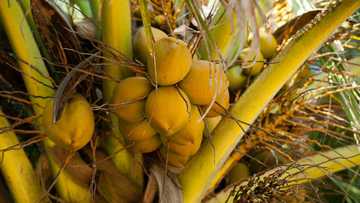The list of 5 common medicinal plants and herbs in Nigeria
Medicinal herbs or medicinal plants in Nigeria are used in many homes as alternatives to modern medicine. They are used to treat a wide range of diseases. Learn about five common medicinal herbs used in Nigeria.
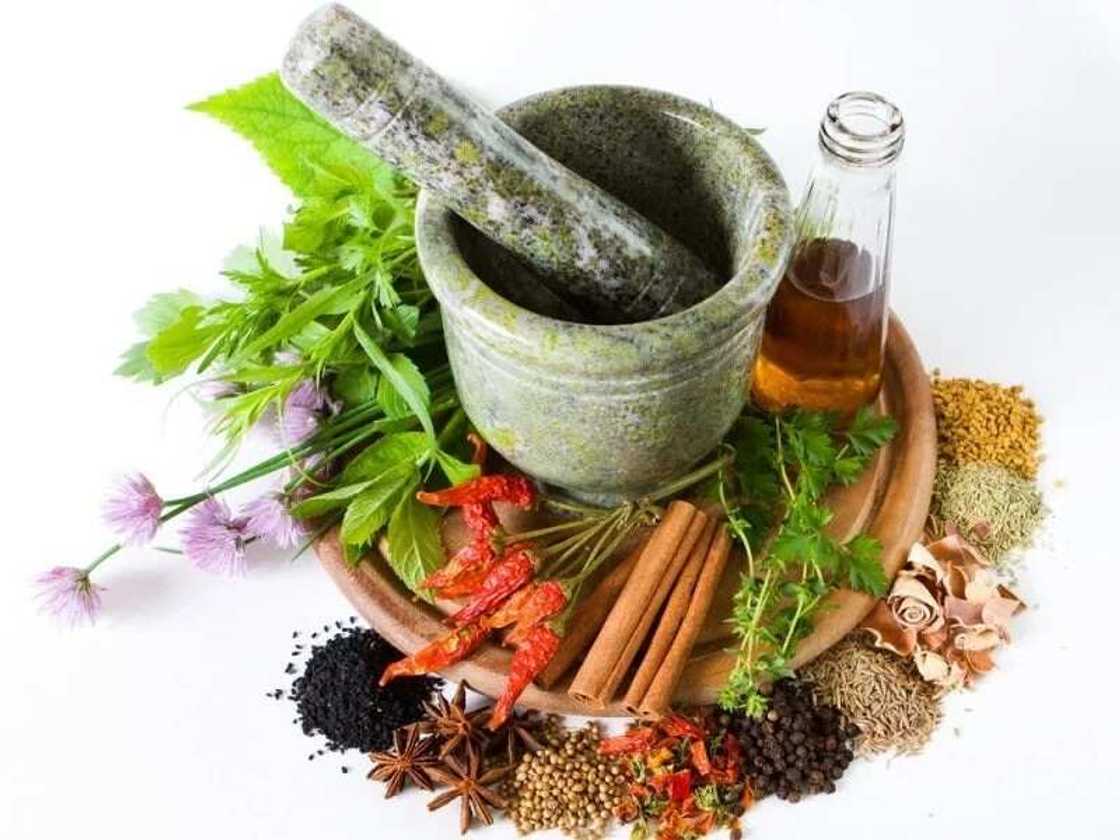
Before the advent of modern medicine, our forefathers were skilled in using medicinal plants to treat diseases. A single medicinal herb can be used to treat different conditions because it contains numerous mineral and biological substances. Modern medicine has seen a reduction in the use of medicinal herbs as most people use English medicinal preparations these days. But medicinal plants are still widely used even among educated people because they are natural and very effective.
List and uses of medicinal plants in Nigeria
Find below some of the common medicinal plants in Nigeria.
Alstonia boonei
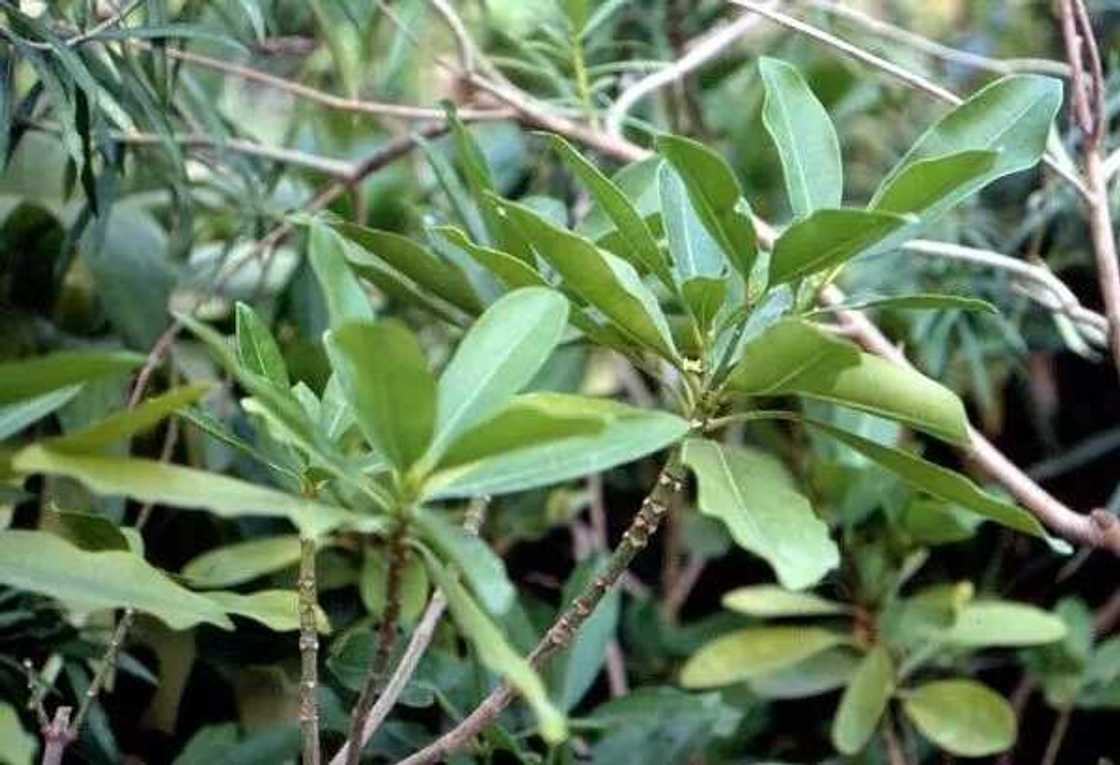
Alstonia boonei is a big forest tree that commonly grows in West Africa. It can grow as tall as forty-five meters in height and three meters in girth. It is a deciduous tree, which means it sheds leaves annually. It is one of the popular medicinal plants in Nigeria and some other countries in Africa. The tree is usually harvested from the forest for local use. Alstonia boonei has lots of medicinal uses. It is majorly used to treat malaria, to reduce fever, and skin problems. Depending on the medicinal purpose, Alstonia boonei is used in different forms.
The roots, bark, and leaves of Alstonia boonei are boiled and used as a concoction to treat ordinary forms of malaria. The mixture is also used externally for cleansing ulcers, snake bites, arrow poisoning, suppurating sores and exposed fractures. Alstonia boonei’s concoction can also be used to treat others diseases such as dysentery, typhoid fever, gonorrhoea, yaws, and even asthma. The leaves, bark, and roots are all useful for relieving rheumatic pain and many other types of pain.
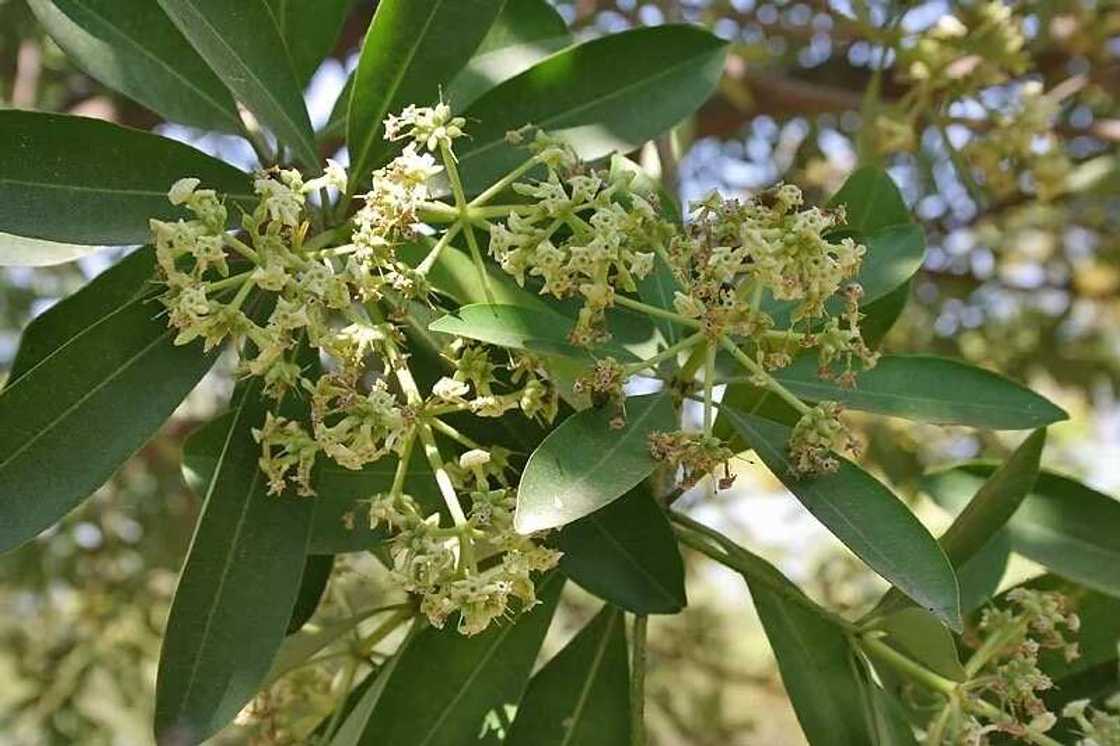
Also, alcohol extracted from the bark has been proven to have a broad-spectrum of antibacterial activity against both gram positive and negative bacteria and also some fungi.
It is also boiled and the liquor strained and used as anthelmintic most especially for children
There are other uses such as treating less intense toothache, jaundice, cough, and sore throat. The concoction is also said to be given in some countries to women after childbirth to promote expulsion of the placenta. Some sources also said it can be used to increase the flow of milk in lactating mothers.
READ ALSO: Health benefits of alligator pepper.
Morinda Lucida
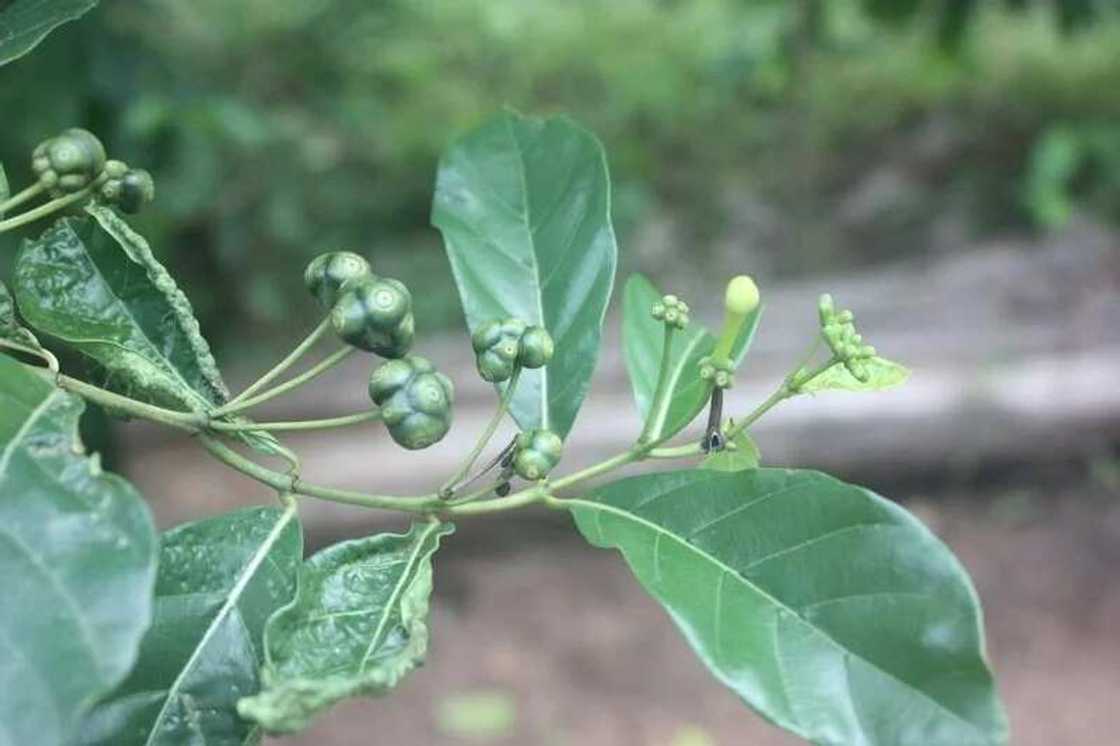
Morinda Lucida is a flowering plant that can be found in all tropical regions of the world. It is considered as a medicinal plant in most parts of West African countries. The effectiveness of its uses has been proven by different trials. Different extracts of Morinda Lucida’s bark have proven to have febrifugal, pain-reducing, and anti-inflammatory activity. They have also been shown to be effective in improving intestinal motility and gastric emptying. Extract from the leaf is also revealed to have antimalarial effect against Plasmodium falciparum. In some other tests, it is also reported to have antidiabetic properties.
Concoctions made from the barks and leaves of Morinda Lucida can be used to treat different types of fever, malaria, and feverish conditions. It is also used in cases such as hypertension, cerebral congestion, diabetes, stomach-ache, and dysentery. It one of the four most popular tradition medicines used in Nigeria for treating fever.
Dongoyaro (Aadirachta Indica or Neem tree)
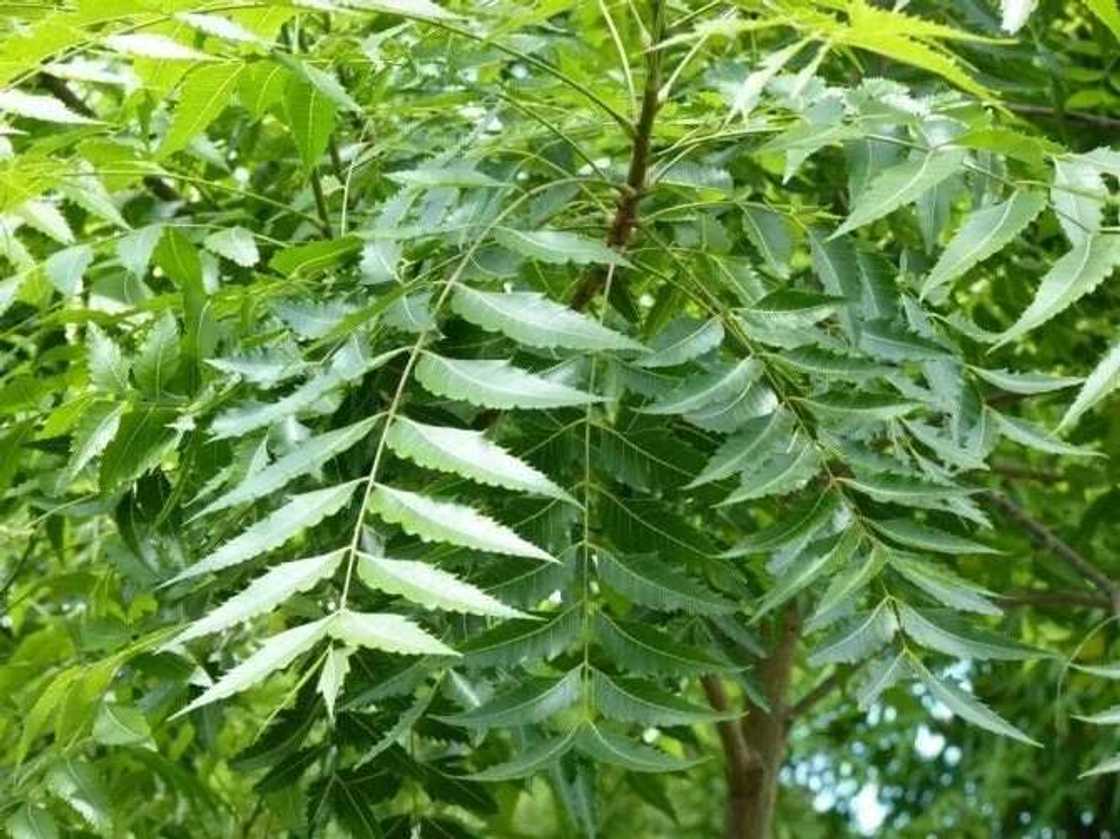
The Aadirachta Indica popularly known as the neem tree is a tropical plant that can be found in tropical and semitropical regions. The tree is popularly known to many Nigerians as dongoyaro and it is seen as a miracle plant because of its numerous medicinal properties. Almost every part of the neem tree has medicinal benefits. The different parts of the neem tree have been widely used in traditional medicine in India for over two decades now. The roots, leaves, bark, seeds, fruit, and gum are used to make different therapeutic preparations. These preparations are used internally and topically.
One of the most popular medicinal use of dongoyaro in Nigeria is to treat malaria. The leaves and bark are boiled with some other plants of medicinal value to prepare a concoction. The patient then drinks the prepared concoction and also baths with it for a few days. The patient becomes fine after a few days. The concoction has a bitter and unpleasant taste.
There are other numerous therapeutic uses of the dongoyaro tree. Some of them include treating conditions such skin diseases, inflammation, urinary tract infection, intestinal worms, eye problems, body pains, etc.
Cleistopholis patens
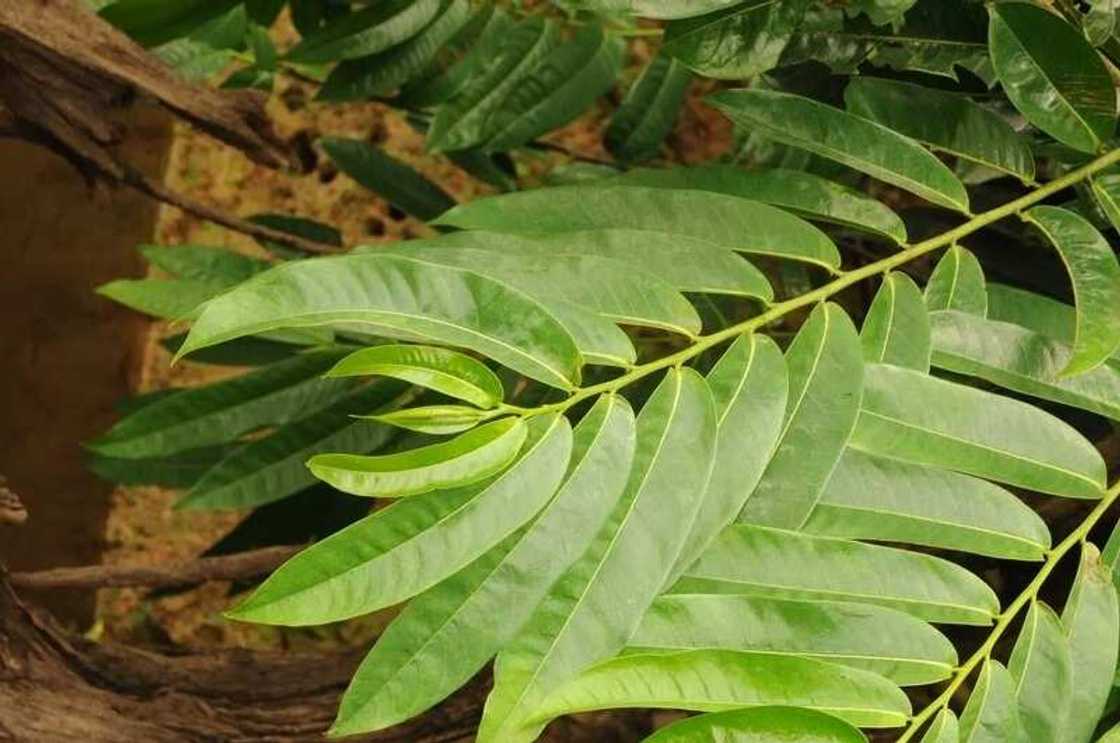
Cleistopholis patens is a medicinal tree in Nigeria. The leaves are used to treat fever and also as an anthelmintic medicine. The leaves are soaked in water to prepare infusion or boiled to prepare a concoction. It can also be prepared in combination with lemon grass, pawpaw or other plants and are used to treat infective hepatitis. The mixture can be used internally by drinking it and also used externally by bathing with it to treat sleeping sickness.
Also, the bark can be pounded to extract the sap or boiled to prepare a mixture which is used to treat tuberculosis and bronchial infection. The bark can also be soaked in cold water to make preparation used for laxative and to soothe colic. Different forms of preparations from the bark are also used to treat conditions such as oedemas, whitlows, rachitic in children, and also headaches.
Oha leaf
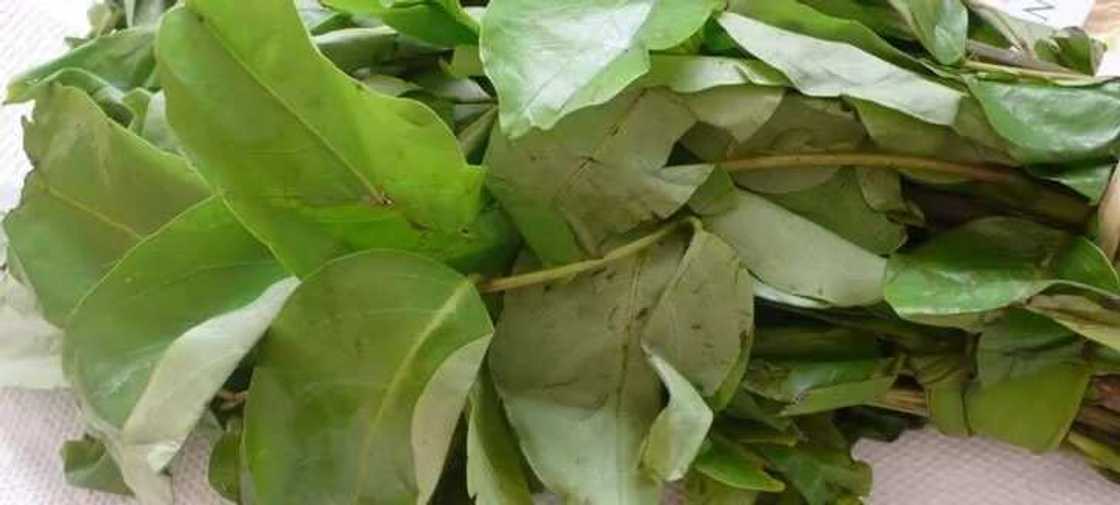
Oha leaf or Ora leaf is the leaf of a medicinal tree in Nigeria that retains its green leaves throughout the year. The botanical name of the tree is Pterocarpus mildbraedii. It has many nutrients such as calcium, amino acids, iron, potassium, fiber, vitamin A and C, etc. The oha leaves possess the following health benefits:
● The dietary fiber contents help to improve digestive function and absorption of the nutrient. The fibre content also helps to prevent and treat constipation.
● The high fiber content makes it beneficial in controlling blood glucose level. The fibers in the oha leaf help in the absorption and a good distribution of calorie in all organs of the body. It is very beneficial in diabetic patients in controlling their blood glucose level.
● Oha leaf contains zinc which has repairing and protective properties for the mucosa of the intestinal. This helps in the treatment of diarrhoea for effective recovery of the intestine.
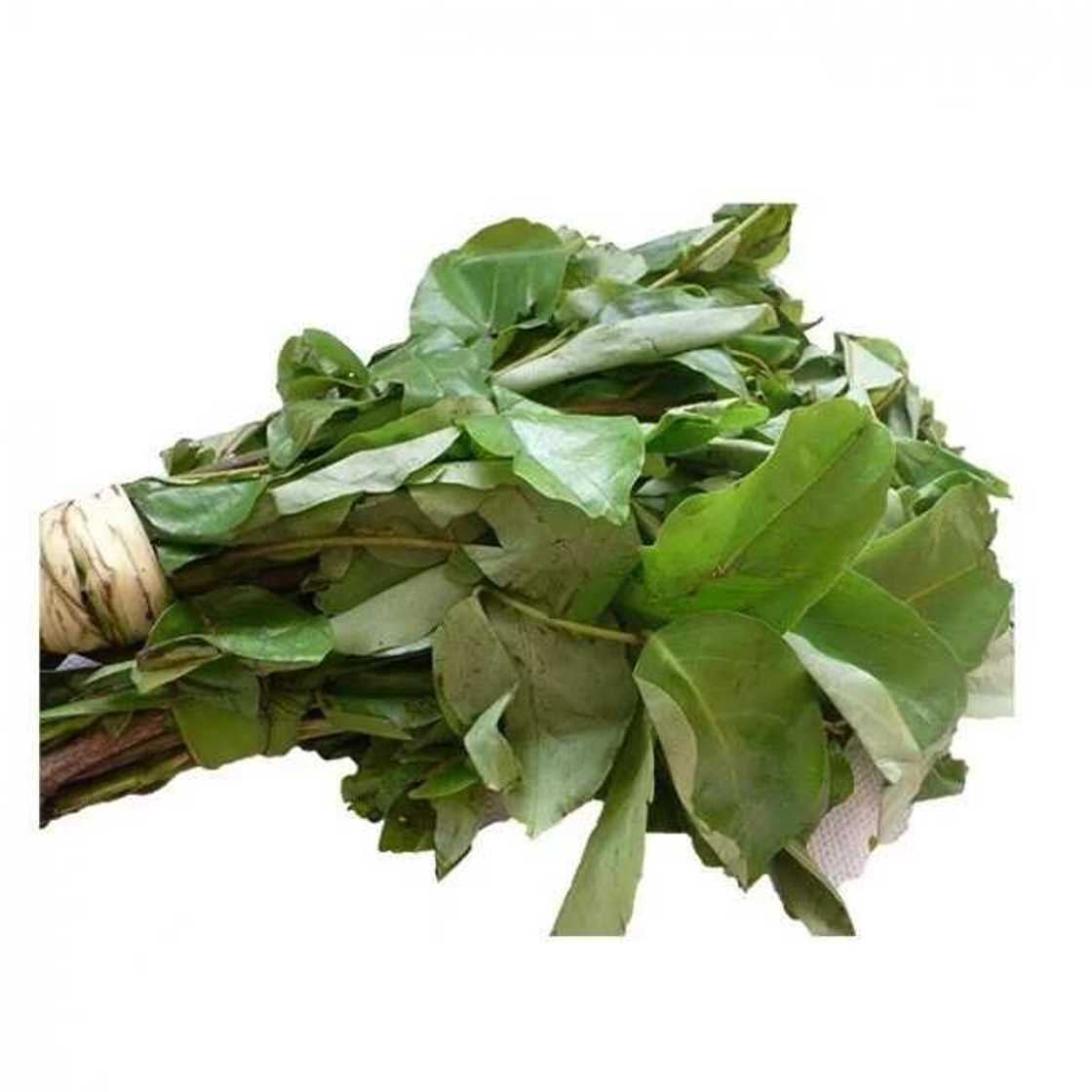
● It can be used in the treatment of anaemia. This is because the leaf is rich in iron mineral which is very important in the red blood cell formation. Also, this therapeutic use is boosted by the vitamin C present in the leaf.
● Oha leaf also contains vitamin C which is the best vitamin used to boost the immune system. The immune system will be effective in attacking microbes.
● Calcium in the oha leaf helps to enhance formation of strong bones.
● Other health benefits include the formation of collagen, improving brain function, helping the heart to contract normally, building muscle mass, and reducing muscle cramps, keeping healthy eyes and protecting of the nervous system. It is also used to treat malaria, maintain the pH of the body, and also to reduce inflammation.
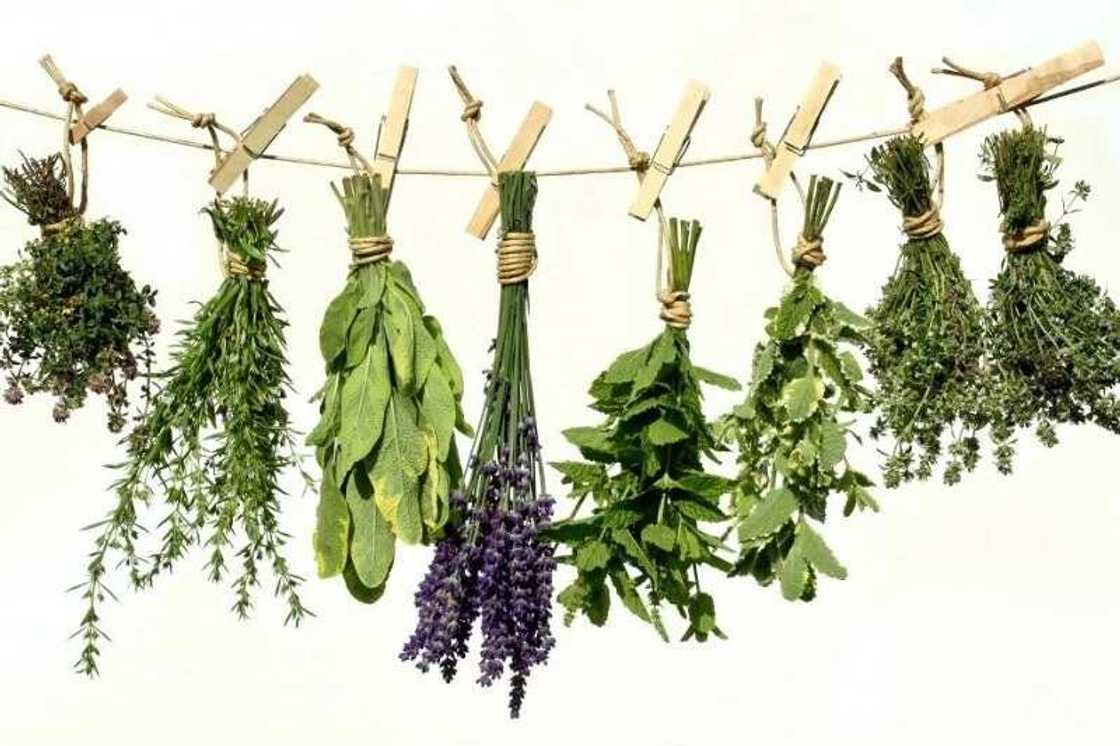
There are other medicinal plants used in Nigeria today. To use any of these medicinal herbs please make sure to read about them carefully. They all can have some negative and dangerous effects on the body if not properly used. So, be careful!
READ ALSO: Yoruba herbs for fertility.
Source: Legit.ng



